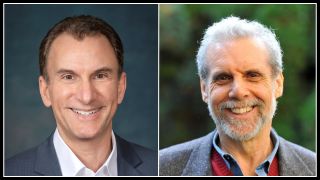Emotional Intelligence
Navigating Stress, and AI, With Emotional Intelligence
A conversation with Dan Goleman about his book, Optimal.
Posted January 10, 2024 Reviewed by Ray Parker
Key points
- Dan Goleman defines the optimal state as being engaged, creative, and progressing toward your goals.
- He encourages you to identify activities that help you recover from stress—meditation, yoga.
- And schedule them into your daily routines.

Part 1 of a two-part series.
Daniel Goleman is a recognized expert on emotional intelligence. His fifth book on this topic, Optimal, was just published Jan. 9, 2024. In this interview, you'll hear directly from Goleman about his new offering and how it can help you live an even better life. The interview was edited for clarity and brevity.
David Fessell: Tell us about your book and what inspired you to write it.
Daniel Goleman: The book is called Optimal, which is about how to sustain personal and organizational excellence every day. It was inspired by looking at research that was done at Harvard Business School, based on 12,000 journals of what people's days were like.
They found that there was an optimal state when people were engaged and committed to what they were doing and creative. They had a lot of 'small wins' toward a bigger goal and they were connecting well with the people around them.
And we realized that emotional intelligence helped boost people into that state where they could be at their best.
Navigating Stress in Today's World: A Helpful Strategy
DF: It sounds like a timely book.
DG: One of the things we talk about is the fact that the body is designed to marshal itself for stressors. But when it does that, it robs the immune system and the cardiovascular and digestive systems. Stress is meant to be a temporary state, and then the body is designed to have a recovery period where you do something that gets you into the resting or parasympathetic state.
In the book, we encourage people to schedule recovery time. I've done research with Richard Boyatzis on stress and recovery. We strongly recommend that people find what helps them recover—whether it's daily yoga, meditation, playing with a pet, or being with friends—and put it on their schedule.
DF: I love that—put it on your schedule and block those times; otherwise, your time is going to get eaten by the pressures of the day.
DG: Absolutely, and it's easy to forget it. It's easy not to do it because it seems "optional." It's not optional; it's crucial.
Optimal: A Book for Everyone
DF: Did you have a specific audience in mind when you wrote this book?
DG: In a way, it's for anybody. Particularly because we don't define Optimal as just for work; it's for life.
We have a whole chapter on what makes a team outstanding. And it isn't that more people on the team have emotional intelligence in spades. It turns out to have to do with how people on the team relate to each other, the norms for interaction. There's a great diagnostic that Vanessa Druskat, an expert on high-performing teams, has on team EI. It's highly effective.
I also have an online program that helps people understand emotional intelligence more deeply and reflect on how it shows up or doesn't in their lives.
Artificial Intelligence and Emotional Intelligence
DF: Do you think artificial intelligence (AI) will help or hurt our individual and collective emotional intelligence?
DG: It's a new thing, and I'm not sure how it will affect emotional intelligence. But there is this glaring problem, which is that AI has to do with cognitive quickness and ability, and emotional intelligence has to do with our feeling world, with our self-awareness. There are four parts to EI: self-awareness, self-management, empathy, and social skills. AI is a bunch of codes. It doesn't have a self. I don't know that it has self-awareness.
It doesn't have emotions. So, it can seem to be empathic. It can imitate, it can mimic. But I'm not sure anybody would be inspired by an AI as much as they would by a human. So, I think leadership is safe.
AI, Empathy, and Compassion
DF: Your book talks a lot about empathy. Some people advocate cultivating compassion rather than empathy. What's your take on this?
DG: I see empathy as having three main varieties. One is cognitive. This is what AI can do well. If you understand the language somebody uses and how they explain the world to themselves, then you can use that language to communicate with them.
The second is emotional empathy, and I'm not sure AI is good at that or will be. Empathy means you know how the other person feels. You feel it, too.
The third is called empathic concern. This is the basis of compassion, of caring about the other person. If you care about the other person, about their well-being, and you communicate that to them, then they trust you more. For example, in medicine, this is a crucial ability. And I'm not sure that AI could do it convincingly. I'm skeptical.
AI for Coaching and Training EI?
DF: Do you think there might be a role, at some point, for AI in coaching or training teams in EI?
DG: I think that AI will be very good at communicating key concepts. I'm not sure it will be good at motivating or inspiring. It's great to understand conceptually what emotional intelligence means.
But just understanding conceptually doesn't mean you have it.
EI is a skill set. You can talk about it, and sure, AI will be able to talk about it very convincingly. But whether it can coach someone to help develop further skills or whether it will motivate people or inspire them―these are key facets of leadership. I'm not sure that can be done by AI.
References
Goleman D, Cherniss C. Optimal: How to Sustain Personal and Organizational Excellence Every Day. HarperCollins Publishers, New York, 2024.




